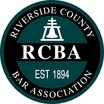
Many people are very overwhelmed by the “estate plan” discussion. When the issue is raised, most people zone out or attempt to change the subject. Visions of paper and signatures and legal jargon and filing documents and changing accounts come to mind. However, having a plan is not only for your property and money – it is also to help your family with end of life decisions.
Wills & Trusts
A will and trust help a person identify how they want their property distributed after death. But, there are several differences between a will and a trust. A will helps a person distribute their property on death, but in order to distribute the property, the will has to be “probated”. Probate requires the will be validated, the deceased person’s assets be inventoried and valued, all debts and creditors to be paid, and, finally, for the remaining assets to be distributed. Probate can take a year to 18 months and may be costly. A trust is often a comprehensive document, which also helps a person, or a couple, distribute their property on death. But, a trust will help you avoid probate and will provide confidentiality. This document never has to be introduced into court. When you are setting up a trust, the cost is more than a will, but may save more money in the long run. Again, there are several differences between the two, but these are some of the highlighted. Either document will help your family carry out your wishes.
Power of Attorney
Another important document, which every person should have, is a power of attorney. A power of attorney is a written document giving another person authorization to make financial and legal decisions for another, if that person should become hospitalized, disabled or otherwise incapacitated. There are many types of powers of attorney – limited powers of attorney, durable powers of attorney, or specific powers of attorney. Medical powers of attorney can be separate documents, completely.In the event you are hospitalized or disabled, it is imperative to give a trusted person the ability to take care of your finances and your health care decisions.
Updated Beneficiary Designation Forms
Beneficiary designation form is a form, which, not surprisingly, designates a beneficiary for a policy or an account. For life insurance policies, 401(k) accounts and other assets, a beneficiary designation form will generally override any conflicting provisions within a will or trust. Often, people forget to update these forms and, when the estate plan is updated,there is now a conflict. In order to make sure the asset goes to who you desire, review these forms annually.
If you are in need of assistance, and could use the advice of a local estate planning lawyer. A qualified attorney who understands the ramifications of your legal documents today and in the future can be worth far more than the cost of a consultation and document preparation.
 Are you married, but want to direct the passing of your property to someone other than your spouse? Are you considering getting a divorce or already in the divorce process? Or are you recently divorced? In any case, it is important to know how marriage or a divorce in California affects distribution of your estate. Update August 5, 2021: New California estate planning laws make it necessary for you to consider changes and updates to your Will or estate plan. Changes to your estate plan enacted in 2021 can have a "retroactive" impact, specifically due to laws that were updated by the Biden administration. To start, there are some general rules to be aware of. If you're married and you do not have a will in place, when you die your share of the estate (one-half of the community property) will pass to your surviving spouse and your separate property will pass to your surviving spouse, per California Probate Code section 6401. This is a general rule. Second, while a finalized Judgment in a dissolution of marriage will revoke a will, a mere separation or even filing for dissolution will not revoke a will, per California Probate Code section 6122. So, essentially, during the dissolution process, the parties remain married and have all the benefits provided to a spouse by law in the event of death, per California Probate Code section 78. From these general rules, we can learn a lot. First, if you are married and want your share of the estate (one-half of the community property) and your separate property to pass to someone other than your spouse, you must have an estate plan in place. Further, if you are thinking of getting a divorce or in the divorce process, it is important to speak to an estate planning attorney about how you can protect your share of the estate (one-half of the community property) and your separate property until you get a Judgment. And, finally, the last lesson is to make sure to draft a new estate plan on the finalization of a divorce. One major item to know, is that during the divorce process, while you cannot change much about how your property will be distributed, you can revoke or amend Power of Attorney or Advance Health Care Directives. You may have these documents in place, so be aware. A good game plan at the end of the divorce process, in order to organize your estate, would be:
If you're recently married or divorced, it's critical to consider the long term implication of your estate plan and how you want your wishes executed when you pass. Whether you're in Palm Springs or Claremont, InlandEmpireLawyers.com has attorneys listed to answer your questions and help you with your planning.  Are you a successor trustee? What happens when the settlor, or creator, of the trust dies? This process is called Trust Administration. Often, when clients come into my office, they assume that establishing a trust will take out all of the “work” required after their death. They could not be more wrong. Yes, having a trust is much to your benefit. However, whomever you appoint as your successor trustee needs to be prepared to get working after your death. There are six distinct steps in this process: (1) Notification; (2) Dealing with real property; (3) Collecting other assets; (4) Paying debts and taxes; (5) Accounting; (6) Distribution. Each step can be very involved and requires good record keeping. So, in choosing a successor trustee, keep in mind that the person must be able to handle a good deal of paperwork and financial responsibilities. Step One: Notification California Probate Code Section 16061.7 has several notification requirements. The successor trustee must notify all beneficiaries and heirs of the death of a settlor (or creator of the trust). The notification section is very specific and has different notification requirements for different situations. It is imperative that a successor trustee is aware of this requirement, as most do not realize their responsibility to act. Step Two: Dealing With Real Property Next, the successor trustee must deal with the real property owned by the settlor. If the trust was properly “funded”, then the real property should already be titled in the name of the settlor as trustee. So, at the settlor’s death, the successor trustee needs to record an Affidavit of Death of Trustee and Consent of Successor Trustee, along with a certified copy of the death certificate, against each real property held in the Living Trust. When it is recorded, it changes the title of the property from the the settlor who has died and into the names of the new trustee(s). If the trust was not properly funded, there may be an issue. However, not all hope is lost. There is an option for a Heggstad Petition, which is a request of the court to transfer real property to a Trust after death. This is not ideal, but it is an option. In addition to the above, there will be a few other forms need by the recorder’s office. Step Three: Collecting Other Assets Once the real property is handled, the next step is collecting all other assets (i.e.: bank accounts, investment accounts) and have the title to those assets transferred into the successor trustee’s name. Getting a Federal Tax Identification Number is needed to complete this step. The successor trustee should NOT use his or her own Social Security Number. Step Four: Paying Debts and Taxes After ascertaining all assets, the successor trustee then determines taxes and debts. To determine whether a federal estate tax return (Form 760) must be filed for the deceased settler, you will need to add up the total value of the decedent’s estate, including both trust assets and non-trust assets. If the total value of the estate is more than the exemption amount, then the successor trustee has nine months in which to file the Form 760. The basic exclusion amount for decedents dying after December 31, 2014 is $5,430,000.00. Even if the estate does not own estate and gift taxes, the successor trustee will be responsible for filing a final income tax document for the decedent. Please be aware that a trustee can be held personally liable for unpaid taxes. Step Five: Accounting The successor trustee must keep a detailed report of the trust assets, all money spent in winding up the decedent’s estate, all deposits into the trust and all disbursements from the trust. Some trust documents will waive this requirement; however, it is still a best practice to keep a record, to protect against any liability. Step Six: Distribution The final step is the distribution. This is a very important step in the process as well. The trust agreement will detail out how property is to be distributed. However, there may be some caveats to outright distribution. There could be creation of sub-trusts or on-going trusts. It would be best practice to get a court approval on a distribution if the trustee is at all concerned about liability. As you can see, trust administration can be confusing and anything but clear cut. If you need further information contact one our featured estate planning, trust & probate lawyers to schedule a consultation. |
IE Legal Hub
Local legal information, published by local Inland Empire lawyers. Are you a local attorney?
Archives
July 2023
Categories
All
|

 RSS Feed
RSS Feed




